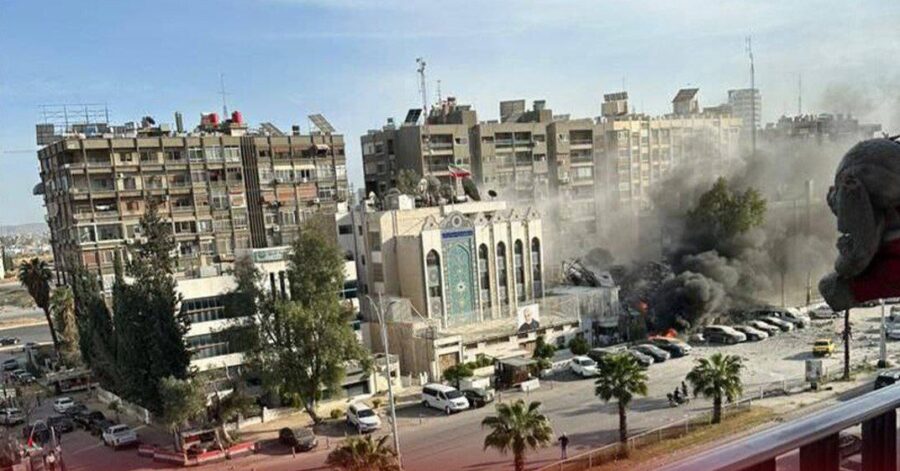After Attack on Israel, Iran Is Anxious to Let Conflict Rest
After Iran’s largely failed attack on Israel, all eyes are now on Benjamin Netanyahu’s war cabinet to see how it will respond.
|
Listen To This Story
|
Iran on Sunday left no doubt that, even though it fired a few hundred missiles and drones on Israel (most of which were intercepted), it hopes that direct acts of war between the two countries will now cease. In light of the unique nature of the attack — it was the first launched directly from Iran — and the assumption that a further confrontation between the countries might help Israeli Prime Minister Benjamin Netanyahu, that seems like a very optimistic assessment on the part of the regime in Tehran.
Iran justified the attack by saying it was conducted based on Article 51 of the United Nations (UN) charter giving countries the right to self-defense. According to Tehran, yesterday’s strike was a legitimate response to Israel’s bombing of Iran’s diplomatic facilities in Damascus, Syria, which killed some of its military leaders.
However, now that it has retaliated, Iran would very much like to see the direct hostilities between the countries to end.
“The matter can be deemed concluded,” said Iran’s UN mission in a tweet.
It remains to be seen whether Israel feels the same way. Its war cabinet is meeting Sunday afternoon local time to discuss a potential response.
If Israel’s leaders decide to retaliate in some form, Iran said it is prepared to strike back more severely.
“[Should] the Israeli regime make another mistake, Iran’s response will be considerably more severe,” Iran’s UN mission said.

Tehran also made it clear that it hopes the United States will remain on the sidelines of this conflict — even though US forces helped intercept some of the drones and missiles.
“It is a conflict between Iran and the rogue Israeli regime, from which the U.S. MUST STAY AWAY!” Iran’s UN mission stated further.
Essentially, Tehran wanted to take one retaliatory shot at Israel and then let bygones be bygones. In light of how little damage that attack apparently did, that could be a possibility. However, that’s not how the world usually works these days.
Netanyahu certainly has an incentive to engage in a limited conflict with Iran to get Israelis to rally behind him. But the keyword here is “limited.” Already engaged in a war with Hamas in the Gaza strip, it seems unlikely that Israel would also want to engage in a large-scale confrontation with Iran.
On the other hand, with most countries in the region feeling no sympathy for Israel (and many of them having attacked the country in the past), it can also not afford to appear weak by not responding to the missile and drone strikes.
The US, for its part, would like to avoid a further escalation of this conflict because Iran’s attack largely failed and therefore demonstrated that Israel’s defense against airstrikes was effective. Top European Union leaders also called for restraint.
Now, all eyes are on what Israel will do. And, as per usual, things in the Middle East are extremely complicated and all scenarios fraught with peril.




